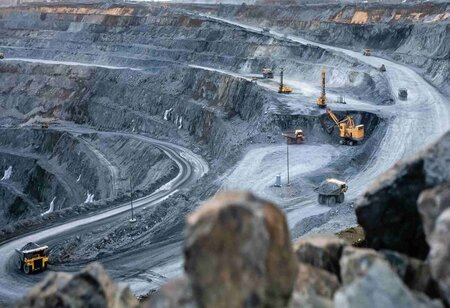India Secures Historic Lithium Exploration Deal in Argentina
By Consultants Review Team
 India has achieved a significant milestone by signing a groundbreaking agreement for a lithium exploration and mining project in Argentina, marking the first-ever lithium project undertaken by a Government Company of India. The lithium exploration pact, valued at 2 billion rupees ($24 million), was signed by Khanij Bidesh India Ltd (KABIL), India's state-owned firm, for five blocks in Argentina. These blocks, including Cortadera-I, Cortadera-VII, Cortadera-VIII, Cateo-2022-01810132, and Cortadera-VI, cover an extensive area of about 15,703 hectares in the Catamarca province of Argentina.
India has achieved a significant milestone by signing a groundbreaking agreement for a lithium exploration and mining project in Argentina, marking the first-ever lithium project undertaken by a Government Company of India. The lithium exploration pact, valued at 2 billion rupees ($24 million), was signed by Khanij Bidesh India Ltd (KABIL), India's state-owned firm, for five blocks in Argentina. These blocks, including Cortadera-I, Cortadera-VII, Cortadera-VIII, Cateo-2022-01810132, and Cortadera-VI, cover an extensive area of about 15,703 hectares in the Catamarca province of Argentina.
Pralhad Joshi, commenting on the occasion, expressed the historical significance of the agreement, emphasizing its role in fostering new chapters in bilateral ties between India and Argentina. The accord, he noted, not only contributes to the sustainable development of the mining sector but also secures a resilient and diversified supply chain for critical and strategic minerals essential to various industries in India.
KABIL, through this strategic move, aims to assess, prospect, and explore lithium resources in the designated blocks, paving the way for potential exploitation rights for commercial production upon the discovery of lithium minerals. The project, with an estimated cost of 200 crores, is a pivotal step for India's quest to source lithium independently and gain valuable technical and operational experience in brine-type lithium exploration, exploitation, and extraction.
Argentina, forming part of the "Lithium Triangle" along with Chile and Bolivia, holds a significant position globally in terms of lithium resources, reserves, and production. The move to explore lithium resources in Argentina is not only an essential aspect of India's transition to green energy but is also strategically significant in reducing the country's reliance on China for crucial minerals. With China having control over more than 80% of the global lithium supply, India's endeavor aligns with broader economic objectives aimed at diversifying critical mineral dependencies.
As the world increasingly considers the shift towards green and sustainable energy practices, lithium plays a central role in the production of lithium-ion rechargeable batteries, powering electric vehicles, laptops, and mobile phones. India's move to secure lithium resources independently signifies a commitment to reducing carbon footprints and fostering green energy practices while lessening dependence on China for a key component crucial to India's energy transition.







